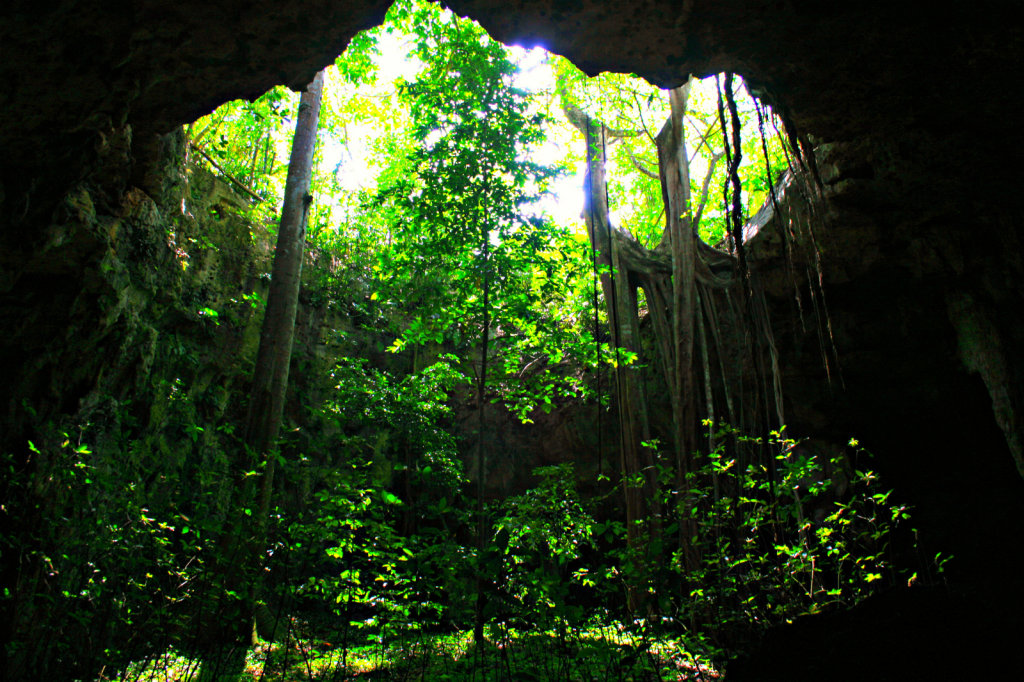On countless occasions when we talk about caves full of petroglyphs and cave paintings, our imagination takes us to the ancestral African continent; without thinking about the possibility of finding one of these caves in this country.
Where? In the Puuc Route, a region in the Yucatan Peninsula, that has several archaeological sites -named after the architectural style used by the ancient Mayan.
The Loltun Caves, whose name means Stone Flower (Lol: Flower, Tun: Stone) is the largest cave system in Yucatan. It consists of 850 m from North to South, 500 m from East to West and 60 m depth; a place that was countlessly inhabited by generations from 9000 BC to 1500 AC. An area where archaeological ceramics, stone and petroglyphs of the Mayan culture and remains of mammoths, bison and big cats have been found.
The visit of the Puuc Route can be done in a day; it is preferable to start with Loltún, since it is the only area that has scheduled tours.
We started the tour entering the jungle, where we found the famous “El Guerrero de Loltún”. Inside the caves, we found peculiar formations like “La Catedral”, “La Galería de Cañón”, “La Mazorca de Maíz” and the Colonnades room, showing us spectacular views of the stalactites which can produce music when they’re touched –a magical and surprising event that never cease to amaze me.
As we get into the cave, weather descended becoming cooler, here lies the answer to our ancestors’ election to use this caves as a shelter from the changing climate. Upon reaching the midpoint, we find the record of the ancient inhabitants, hands marked on the rock, a signature engraved on rock for hundreds of years. Without looking or not the Mayans once again managed to transcend in such hidden place, away from the human gaze; a place, that the mere fact of exploring it, not only is a challenge but it is also a renewal of our sense of wonder.
The way back was guided by small outbreaks of light, which gradually showed the colorful and sonic jungle of this unique place.
Thus ends an incredible journey through time in the home of our ancestors -at a time when humans and nature gave meaning to the verb coexist.
What to bring
- Mosquito repellent
- Hat or sunscreen
- Water
- Camera
- Careful when carrying a tripod –They do not allow its use in any archaeological site, unless you pay a tax for video production.
Getting there
On Federal Highway No.180
From Ticul, use the No.184 road to Oxkutzcab
It is possible to arrive by public transport
Services
Parking, toilets, guided tours
schedule
9:30 a.m. to 4:00 p.m.
General admission: adults 105 pesos, nationals 78 pesos, under 13 years 6 pesos.
